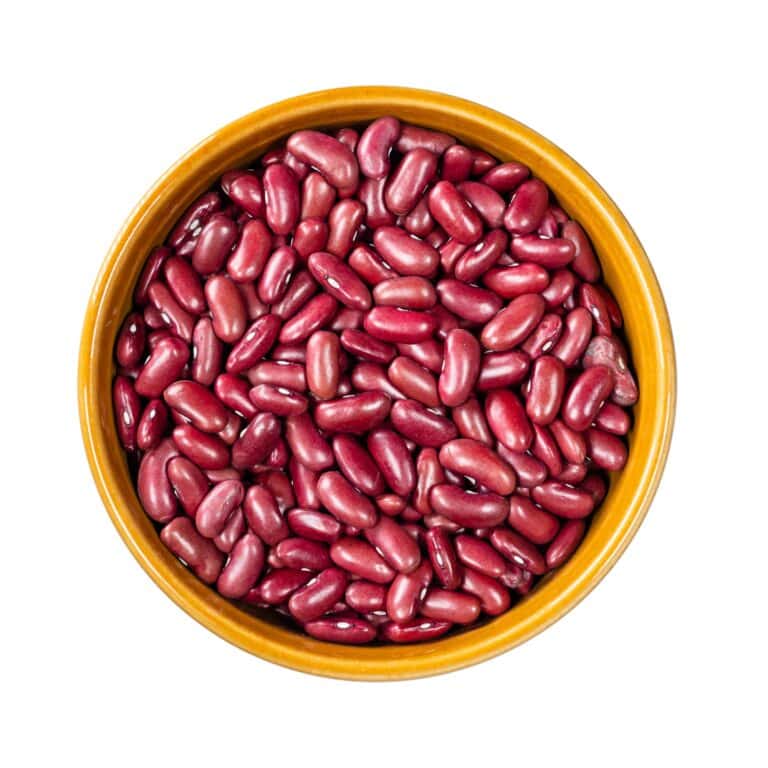Is Lemon Good for Kidneys?
Curious about how lemons affect kidney health? While lemons are praised for their citric acid that might prevent kidney stones, they're also high in citrate, which can impact kidneys.
This article explores how lemons, with their vitamin C and citric acid, could help or harm kidney function. We'll break down the facts, sharing whether lemons truly boost kidney health or pose risks for those with kidney issues.
Let's unravel the truth behind this citrus fruit and their effects on kidneys, offering straightforward insights to help you make informed choices for your kidney health.
Jump to:
- Key Takeaways
- Understanding Kidney Function
- Lemon's Nutritional Profile
- Citrate and Kidney Stones
- Lemon's Detoxifying Effects
- Hydration and Kidney Health
- Potential Risks and Considerations
- Impact on Kidney Disease
- Lemon Intake Recommendations
- Alternative Kidney-Friendly Foods
- Frequently Asked Questions
- When Life Gives You Lemons, You Make the Most of Its Benefits
Key Takeaways
- Lemons are rich in citrate, which helps prevent kidney stone formation by inhibiting crystal growth.
- Adequate fluid intake, including lemon water, can reduce the risk of kidney stone formation.
- Lemon water can contribute to overall hydration by keeping you drinking water, and help maintain fluid balance in the kidneys.
- Excessive consumption of citric acid in lemons may disrupt renal system balance and should be avoided.
Understanding Kidney Function
Your kidneys are essential for filtering blood, and their primary function is to remove waste products and excess fluids, which are then excreted as urine. They regulate electrolytes, maintain acid-base balance, and control blood pressure through the filtration process.
Understanding how effectively your kidneys perform (in a human body) waste removal can inform you about the impact of dietary choices, such as lemon intake, on renal health.
For More Recipes and Ideas --->> Get Your Free Meals and Recipes That Are Perfect for Pre-Dialysis Diets, Pre-Dialysis with Diabetes, or Dialysis Diets.
Filtration Process Basics
Consider how your kidneys filter waste from your bloodstream, a critical process for maintaining your body's balance.
Kidney anatomy consists of a pair of bean-shaped organs, each containing around a million filtering units called nephrons. These nephrons are the cornerstone of blood purification.
At the heart of each nephron is the glomerulus, a tiny network of blood vessels where glomerular function initiates filtration. Blood enters the glomerulus, and the filtration rate is meticulously regulated, allowing water and waste products to pass through while retaining essential blood components.
Nephron efficiency is key as it ensures toxins are excreted and vital substances are reabsorbed. This selective filtration safeguards your internal environment, contributing to overall health and well-being.
Waste Removal Efficacy
Understanding how well your kidneys remove waste is vital, as this function is crucial for preventing the buildup of harmful substances in your body. Renal efficiency refers to how effectively your kidneys can filter out toxins and metabolic byproducts. High renal efficiency ensures the timely elimination of these substances, maintaining a balance that's essential for your overall health.
Toxin filtration is an ongoing process, with kidneys constantly cleansing your blood. Specifically, urea reduction is indicative of how well your kidneys are functioning. This process is critical, as urea is a waste product formed from protein breakdown.
Additionally, creatinine clearance is a measure used to assess kidney function, reflecting the rate at which your kidneys can clear creatinine from your blood, a byproduct of muscle metabolism.
Lemon's Nutritional Profile
You'll find that lemons are an excellent source of vitamin C, a powerful antioxidant that can play a role in reducing inflammation and preventing oxidative damage. They're also rich in potassium, a mineral that's critical for maintaining fluid balance and proper nerve and muscle function.
These nutrients contribute to their potential benefits for kidney health, which we'll explore in the context of their effects on renal function.
Vitamin C Content
Lemons are a vitamin powerhouse, notably rich in vitamin C. A single lemon can provide about 30-40 milligrams of vitamin C, nearly half the daily recommended intake. Vitamin C is crucial for overall health, acting as a potent antioxidant that helps combat free radicals, aiding in immune function, collagen synthesis, and iron absorption.
In the context of kidney health, vitamin C from lemons might offer benefits, potentially reducing the risk of kidney stone formation due to its citric acid content, which inhibits stone formation by increasing urinary citrate levels.
However, excessive intake of vitamin C, especially in supplement form, may increase oxalate levels in the urine, potentially contributing to stone formation in individuals prone to kidney stones. Moderation is key to harnessing the benefits of vitamin C in lemons for kidney health.
Nutrient Levels
Lemons boast potassium alongside vitamin C, a nutrient crucial for nerve function, muscle control, and electrolyte balance. However, for individuals with Chronic Kidney Disease (CKD), potassium intake management is pivotal. While lemons contain potassium, the amount is relatively low compared to other high-potassium foods. Yet, in advanced CKD stages, even moderate potassium intake might be restricted to prevent hyperkalemia, a dangerous elevation of blood potassium levels.
Therefore, consulting a healthcare provider or dietitian regarding lemon consumption becomes essential for renal patients. Moderation is key, as lemons can impart flavor without significantly increasing potassium levels, making them a safer option for some chronic kidney disease patients, but caution is necessary to align consumption with individual dietary restrictions.
Citrate and Kidney Stones
You may find it interesting that citrate, a key component in lemon juice, plays a crucial role in preventing kidney stones.
Higher citrate levels in your urine can inhibit the formation of these stones by binding to calcium, which otherwise crystallizes and grows into stones.
Consuming lemon juice, therefore, might increase your urinary citrate levels, potentially reducing your risk of stone formation.
Citrate Levels Impact
In regard to your kidney health, increasing your intake of citrate, particularly from lemons, can help prevent the formation of kidney stones. Citrate plays a crucial role in citrate synthesis, which is vital for enzymatic functions related to metabolic regulation. Moreover, citrate is essential in maintaining acid-base balance, aiding in urinary pH adjustment to create a less favorable environment for kidney stone development.
- Citrate Synthesis: Enhances enzymatic processes essential for kidney function.
- Acid-Base Balance: Citrate helps neutralize excess acidity, promoting optimal kidney health.
- Enzymatic Functions: Adequate citrate levels ensure proper enzyme activity linked to metabolic pathways.
- Urinary pH Adjustment: Citrate increases urinary pH levels, reducing the risk of stone formation.
Reducing Stone Formation
Reducing stone formation involves maintaining proper hydration and dietary adjustments. Citrate, found in lemons, inhibits stone formation by binding to calcium in the urine, preventing crystallization. Increasing citrate levels through lemon consumption or medications can raise urinary citrate, reducing the likelihood of formation of stones in patients prone to this condition. Adequate hydration, achieved by consuming ample fluids, dilutes substances in urine that form stones and promotes their elimination.
Additionally, dietary modifications, such as reducing sodium and animal protein while increasing intake of fruits like lemons, support a lower risk of stone formation. Medical guidance is crucial, as individual stone types require specific dietary adjustments to manage citrate levels effectively and reduce risk of stone recurrence in patients with prior history.
Lemon's Detoxifying Effects
You may be aware that lemons are often touted for their detoxifying properties, but let's examine how this relates to renal health.
The high concentration of citric acid in lemons can enhance your kidneys' ability to flush out toxins and discourage stone formation. This preventative measure is crucial, particularly if you're at risk for developing kidney stones.
Citric Acid Benefits
Citric acid, abundant in lemons, offers several health benefits. It helps prevent kidney stone formation by binding to calcium in urine, hindering crystal aggregation. This acidification of urine due to citrate reduces the likelihood of stone development. Additionally, citric acid assists in enhancing the absorption of minerals like calcium, iron, and magnesium in the digestive tract, supporting overall mineral balance. Its antioxidant properties combat oxidative stress, reducing cellular damage.
Furthermore, citric acid aids in boosting the immune system by regulating pH levels in the body, creating an environment less conducive to bacterial growth. These multifaceted advantages underscore the positive impact of citric acid, particularly from sources like lemons, on kidney health and overall well-being.
Kidney Stone Prevention
In addition to its citric acid benefits, lemon can aid in preventing kidney stones due to its detoxifying properties that promote urinary tract health. You understand that maintaining hydration is crucial for kidney function and stone prevention. Adequate fluid intake ensures a beneficial fluid balance, reducing the risk of crystal acid stone formation. It's imperative to monitor not only water intake but also the consumption of dietary calcium and oxalate-rich foods, as these can contribute to stone formation.
| Hydration Importance | Dietary Calcium | Oxalate Consumption |
| Increases urine volume | Binds to oxalate | Reduce to lower stone risk |
| Dilutes waste products | Prevents stone formation | Found in nuts, spinach |
| Promotes urinary health | Necessary for bone health | Control is key |
| Aids in detoxification | Absorbed with vitamin D | Herbal remedies assist |
| Ensures fluid balance | Overconsumption risks | Lemon may decrease absorption |
Hydration and Kidney Health
Adequate hydration is crucial for your kidneys. It helps in maintaining fluid balance and facilitates the elimination of waste products from your body.
Drinking lemon water can enhance this process. It provides the kidneys with citrate, which may reduce the risk of kidney stone formation.
However, it's important to understand that while lemon water contributes to your overall fluid intake, pure water should remain your primary source of hydration for optimal kidney function.
Water Intake Importance
Adequate water intake is crucial for kidney health as it facilitates the elimination of waste and toxins. Water helps kidneys filter blood, removing waste products and excess fluids to form urine. Maintaining proper hydration ensures a balanced concentration of minerals and salts in urine, reducing the risk of kidney stone formation.
Sufficient water intake also supports blood volume and aids in transporting nutrients to cells while removing waste. It assists in regulating body temperature and lubricating joints. In the absence of proper hydration, kidneys struggle to function optimally, potentially leading to kidney damage or urinary tract issues. Ensuring regular water intake promotes kidney health, facilitating their vital role in maintaining overall bodily balance and function.
Lemon Water Benefits
Drinking lemon water can significantly boost your hydration levels, which is beneficial for kidney function and overall health. The lemon acidity works to maintain a balanced internal pH, which is crucial for optimal kidney performance. By enhancing the water's flavor, you're more likely to meet your daily fluid intake requirements, thus supporting kidney filtration processes.
Regular consumption of lemon-infused water contributes to dietary balance by providing vitamin C, essential for immune support and collagen synthesis. It's a low-calorie alternative to sugary beverages, aiding in weight management—a key factor in preventing kidney-related issues.
Moreover, the natural compounds found in lemons may assist in the prevention of kidney stones, enhancing your ability to serve others with vitality and vigor.
Potential Risks and Considerations
While lemons can be beneficial for kidney health, they're not without potential risks. You should be aware that excessive consumption of citric acid may lead to an overload, which can disrupt the delicate balance of your renal system.
Furthermore, if you're prone to kidney stones, particularly those composed of calcium oxalate, increasing citric acid intake could potentially exacerbate stone formation.
Citric Acid Overload
Excessive intake of citric acid, often through supplements or highly concentrated sources, may lead to complications. While citric acid is naturally present in various fruits and aids in kidney stone prevention by inhibiting stone formation, overconsumption can trigger adverse effects. Excessive citric acid may contribute to gastrointestinal disturbances like stomach cramps, diarrhea, or nausea. Additionally, its acidic nature might erode tooth enamel over time, leading to dental issues.
For individuals with compromised kidney function, excessive citric acid intake could potentially elevate potassium levels, posing risks to heart health. While citric acid from natural sources like lemons is generally safe, moderation is crucial to avoid adverse effects associated with excessive intake of citric acid supplements or highly concentrated forms.
Kidney Stone Formation
Your kidney's ability to manage mineral deposits can be influenced by your intake of lemons, which may either prevent or contribute to the formation of kidney stones. Lemons are high in citric acid, which can increase urinary citrate and potentially decrease the risk of calcium oxalate stone formation. This is pivotal for patients prone to renal colic, a painful condition resulting from stone movement within the urinary tract.
However, it's essential to maintain a proper fluid balance and pH regulation to optimize these benefits. Excessive consumption of lemons could alter oxalate levels, inadvertently increasing the risk of stone formation. It's crucial for healthcare providers to guide those at risk in managing their dietary intake, ensuring that lemons are consumed in moderation to support kidney health without inadvertently causing harm.
Impact on Kidney Disease
When managing chronic kidney disease, you must consider the role of citrate levels in kidney health. Increased citrate levels from lemon intake can bind with calcium, potentially reducing the risk of developing calcium oxalate kidney stones.
However, you should consult your healthcare provider to tailor dietary choices to your specific condition, as individual responses may vary.
Citrate Levels Increase
An increase in citrate levels can offer several benefits, especially in the context of kidney health. Higher citrate concentrations in urine play a crucial role in preventing kidney stone formation. Citrate binds to calcium in the urine, reducing the formation of crystals that can lead to stones.
However, excessive elevation of citrate levels can have adverse effects. For instance, excessively high citrate levels might contribute to alkaline urine, potentially leading to conditions like alkalosis, where the body's pH becomes too high. Elevated citrate levels can also affect the balance of electrolytes like potassium, causing imbalances that could impact heart function.
Monitoring and maintaining optimal citrate levels are crucial for reaping its stone-preventing benefits while avoiding potential complications.
Chronic Kidney Risk
Citrate plays a vital role in reducing the risk of kidney stone formation, especially in chronic kidney disease (CKD). Its presence in urine helps inhibit the formation of crystals, primarily calcium oxalate and calcium phosphate, which are common constituents of kidney stones. In CKD, where there's a heightened risk of kidney stone development due to mineral imbalances, maintaining adequate citrate levels becomes crucial. Citrate acts by binding to calcium, preventing it from crystallizing and forming stones. Additionally, it helps neutralize urine acidity, reducing the potential for certain types of stones to form.
Ensuring proper citrate levels through dietary measures or supplements may be beneficial in managing CKD-associated stone risks and preserving kidney health by minimizing stone formation.
Lemon Intake Recommendations
As you consider incorporating lemons into your renal health regimen, it's crucial to adhere to daily dosage guidelines to maximize the therapeutic benefits while minimizing potential risks.
Lemons are rich in citric acid, which can play a pivotal role in preventing kidney stone formation and supporting overall kidney function.
It's essential to consult with your healthcare provider to tailor your lemon intake to your individual health needs and circumstances.
Daily Dosage Guidelines
You should consider including lemon in your diet, but it's crucial to adhere to daily intake recommendations to support kidney health. Lemon dosage plays a significant role in renal diets. When integrating lemons into your hydration strategies, maintaining fluid balance is essential, and you must be mindful of acidity concerns that could impact renal function.
- Limit lemon juice to 120 milliliters (4 ounces) per day to prevent excessive citrate intake.
- Dilute lemon juice in water to enhance palatability and ensure adequate hydration.
- Consume lemon-infused water throughout the day to distribute intake evenly.
- Consult with a healthcare provider to tailor lemon consumption to your specific renal health needs.
Carefully calibrated lemon consumption can be beneficial in managing kidney health, provided it aligns with individual dietary requirements.
Citric Acid Benefits
Lemon, rich in citric acid, offers versatile options for inclusion in various dishes and beverages. Its tangy flavor can complement both sweet and savory recipes.
For drinks, lemon juice adds zest to plain water, teas, or infusions. In cooking, it enhances marinades for meats, dressings for salads, or sauces for seafood. Lemon zest, containing citric acid, can intensify the flavor of baked goods like cakes or cookies. Incorporating lemon into recipes involves using its juice, zest, or even slices to infuse dishes. Simple ideas
include drizzling lemon juice over grilled vegetables, using zest in pasta dishes, or adding slices to water or cocktails. Its versatility allows for creative integration into a wide array of culinary creations, offering both taste enhancement and potential health benefits.
Alternative Kidney-Friendly Foods
You should consider incorporating low-potassium choices into your diet to support renal health, as high levels may exacerbate kidney burden.
Antioxidant-rich alternatives, such as berries and bell peppers, can provide protective benefits against oxidative stress without compromising kidney function. You will love this roasted red bell pepper sauce for all your pastas and noodles.
It's essential to balance your intake of these foods to manage your kidney health effectively.
Low-Potassium Choices
For those managing kidney health, turning to low-potassium foods is essential. There are ample options you can include in your diet without compromising on taste or nutrition. It's critical to understand the impact of dietary choices on renal function.
Lemons, known for their diuretic properties, may aid in renal pH regulation and contribute to electrolyte balance. However, it's important to dispel kidney cleanse myths and consider the relevance of an alkaline diet with caution.
Consider incorporating these kidney-friendly foods:
- Apples and berries: High in antioxidants, low in potassium
- Cauliflower and bell peppers: Versatile vegetables low in potassium
- White bread and pasta: Refined grains with lower potassium content
- Rice milk (not enriched): A nondairy, low-potassium alternative to milk
Antioxidant-Rich Alternatives
Antioxidant-rich foods, like blueberries and spinach, offer kidney-friendly benefits without adding excess potassium to your diet. These foods are valuable antioxidant sources that can help neutralize free radicals, potentially reducing oxidative stress which is linked to chronic kidney disease progression.
In particular, the blueberry benefits for kidney health are substantial due to their high anthocyanin content, a type of antioxidant.
Additionally, green tea serves as a kidney-supportive beverage, containing catechins that aid in the mitigation of oxidative damage.
When you're seeking to support kidney function, incorporating a variety of these antioxidants into your nutritional plan can be beneficial. By doing so, you're not only caring for your own health but also setting a precedent for others who may look to you for guidance.
Frequently Asked Questions
Lemon juice can affect certain kidney medications due to its high citric acid content. It may alter medication absorption or metabolism, impacting drug effectiveness. Consult your healthcare provider to assess potential interactions, as this can vary based on specific medications. Monitoring your intake and discussing dosage adjustments or alternative remedies with your doctor ensures safe consumption alongside kidney medications.
Consuming lemon, particularly in the morning, can support kidney health. Its citric acid may prevent kidney stone formation by increasing urine citrate levels. Drinking warm lemon water on an empty stomach aids hydration and detoxification. However, moderation is key as excessive citric acid intake may be detrimental. Consulting a healthcare professional can determine personalized timing and dosage, ensuring it complements your overall kidney health regimen.
Lemon consumption impacts kidney function by increasing urine citrate levels, potentially reducing kidney stone formation. However, its high citric acid content might affect other minerals. While it boosts citrate, it may lower calcium in the urine, potentially impacting bone health. Moderation is crucial, as excessive citric acid intake could affect mineral balance. Consulting a healthcare provider ensures a balanced approach, safeguarding essential minerals crucial for kidney function and overall health.
Fresh lemons offer superior kidney health benefits compared to bottled lemon juice due to their higher nutrient content and absence of preservatives. Fresh lemons contain more antioxidants, vitamins, and natural enzymes, promoting kidney function and preventing stone formation. Bottled lemon juice, often processed and preserved, may lack some nutrients and contain additives that could diminish its health benefits. Opting for fresh lemons ensures maximum nutritional value for supporting kidney health.
When Life Gives You Lemons, You Make the Most of Its Benefits
Lemons offer potential benefits and risks for kidney health. Rich in citrate, lemons may help prevent kidney stone formation by inhibiting crystallization and promoting urinary citrate levels. Adequate hydration with lemon water contributes to overall kidney health. However, excessive citric acid intake, especially from supplements, may pose risks like gastrointestinal issues.
For those with kidney conditions, moderation is crucial, and consulting healthcare providers for personalized guidance is recommended. Additionally, incorporating low-potassium alternatives and antioxidant-rich foods into the diet supports overall renal well-being, emphasizing the importance of a balanced approach to kidney health.










